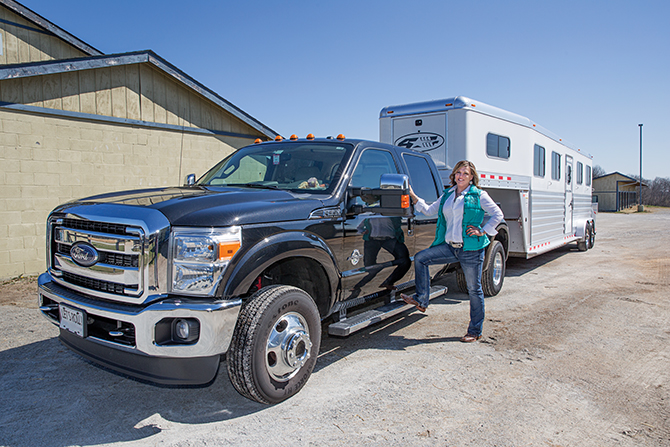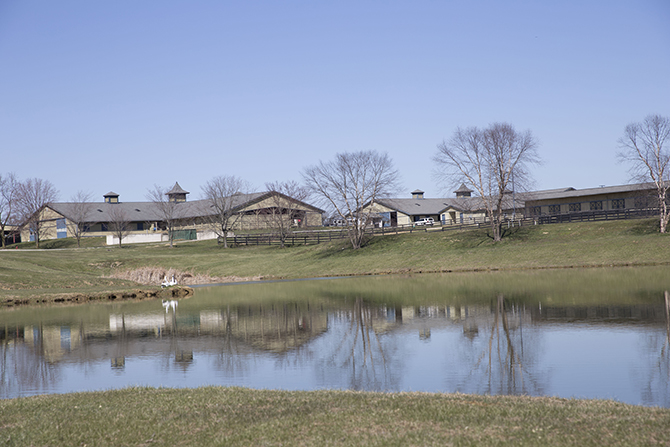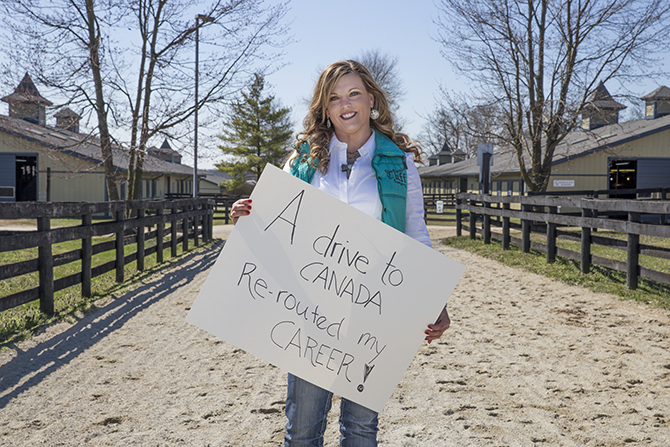By Lucy M. Pritchett
Natalie Roberts didn’t expect to experience a Turning Point when she agreed to make a trip across the border into another country.
This was seven years ago, and she was working in an accounting position with a firm in Southern Indiana. An opportunity arose for her to transport race horses to Canada. The trainer of those horses didn’t have a passport and couldn’t travel out of the country, so he offered Natalie what she says was a “substantial amount of money” to transport the horses and handle them at the track for a few weeks.
Natalie had grown up around horses — Saddlebreds, Morgans, Quarter horses, and miniatures. She showed horses all over the country and was experienced in transporting them. At the University of Louisville she earned a degree in business management.
“I had been looking for a way to start a small business and one that I could go into with my parents,” Natalie says. “It just so happened that at the time my dad was getting ready to retire, and I felt that I could build a business on transporting race horses. That was the beginning of Latitude Equestrian. I left my job and continued to work for that trainer for two years. He had over a hundred horses, and I transported them for him and took care of the them at the races.”
Now this 35-year-old woman from Oldham County spends most days in her black Ford 350 Super Duty pickup truck, driving horses from farms or training facilities to race tracks and back again.
 |
“I used to transport my own horses, and I’m a licensed assistant trainer so I can handle a lot of business at a race track. Typically I transport a horse or horses to the racetrack and return them to the training center in Oldham County. Sometimes I’m gone for a week, but mostly I average two to three days out of town.” Her routes generally include Turfway Park, Ellis Park, Churchill Downs, Keeneland, and tracks in New York, Arkansas, Iowa, and Florida.
 |
| HighPointe Farm & Training Center. Photos by Patti Hartog |
Most trips will find her with a driving companion, either a cousin, a friend, or perhaps her mom. She spends her hours on the road listening to the radio and planning what needs to be done when she arrives at her destination. She started the company with one horse trailer and now has three.
Natalie says there are only three or four women who are doing this type of work, and typically they are part of a husband-wife team. “Off the top of my head I can only think of one other sole female van driver. It’s definitely a male-dominated industry, but women in this industry have done well. I am definitely rewarded for what I do.
“I love this industry. It is kind of old school. The people love the horses and racing. We want to take care of the horses and want everyone to do well.”
 |
| Natalie takes a horse to his stall. |
Of course, Natalie says, the business has its downfalls. She has no real schedule and may get a call first thing in the morning and be on the road to Florida that afternoon. “I might be unloading horses in the pouring rain, but the upsides outweigh anything like that. I get to travel and I’ve become friends with the families of trainers. Best of all I get to spend time with the horses — they are great animals.
“I like to be in control of my life as much as possible. I knew I had to take a chance whether it was right or wrong. I’m grateful for the support of my parents. I wouldn’t be where I am today if I hadn’t taken the risk. It’s really the best thing I’ve ever done for myself.”




